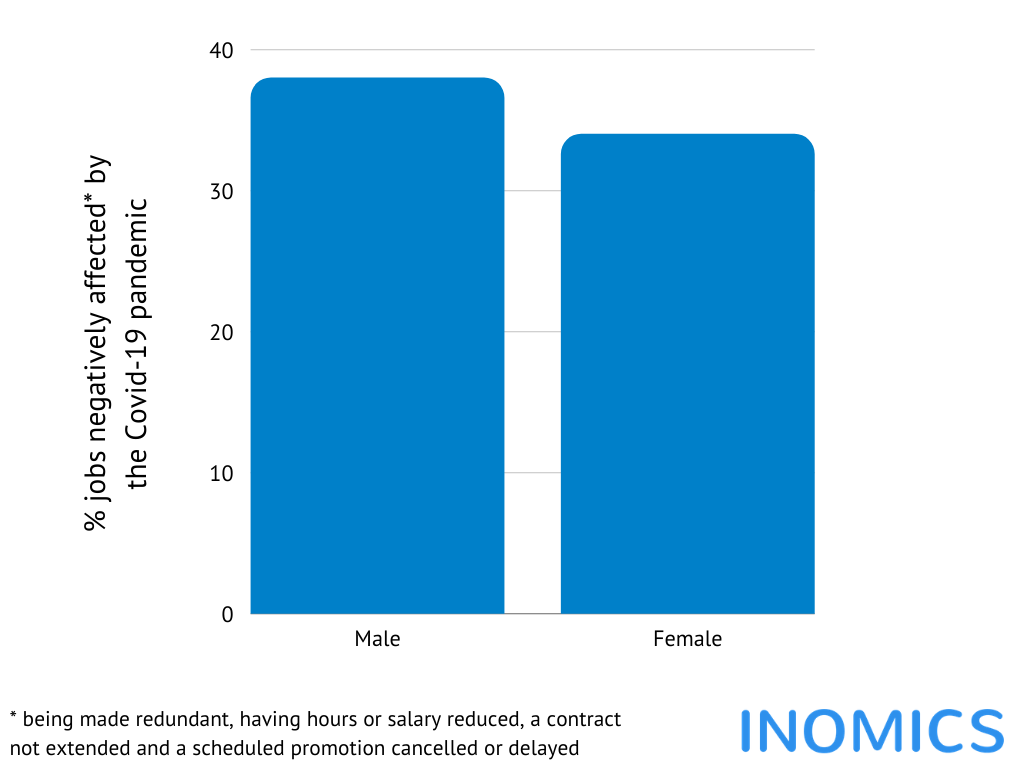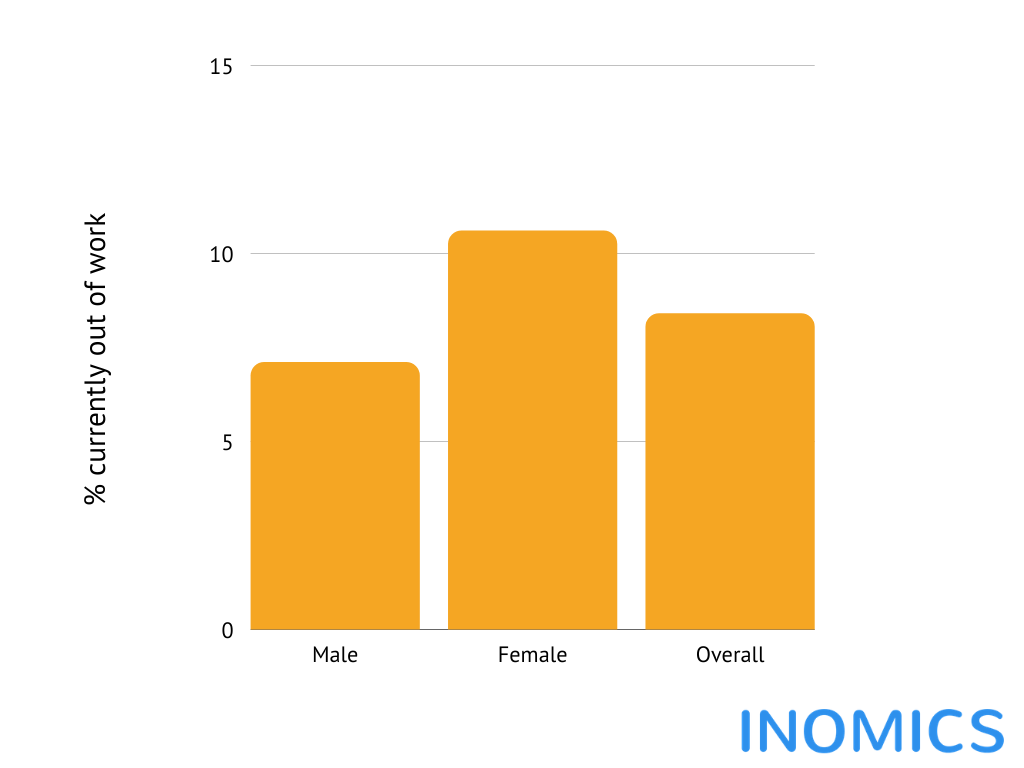
INOMICS Salary Report 2020
COVID-19 and the Effect on Female Employment and the Gender Pay Gap
Read a summary using the INOMICS AI tool
Less than a year on from COVID’s genome sequencing, vaccination programs are being rolled out around the world. And while the pandemic is far from over, it would appear we’re approaching its endgame, arriving there faster than anyone dared hope. The previous fastest ever vaccine to be developed was for Mumps - and that took four years.
However, along with impressive scientific advances, have come huge economic and societal costs, many yet to be fully counted. In particular, lockdowns - and all their attendant economic woe - are reversing decades of progress made narrowing the gender pay gap and improving working conditions for women.
Largely, this is because women are overrepresented in many of the industries hardest hit by societal shutdown, namely service, retail and entertainment. It’s estimated that 40% of all employed women worldwide, that is 510 million women, work in these sectors.
Paid domestic workers - those working for private households - make for an illustrative example. According to ILO statistics, nearly 55 million domestic workers, two thirds of whom are women, have reported being significantly affected by job losses or reductions in working hours and earnings in the last few months alone.
In the Global South, many of the problems women have faced stem from their greater reliance on informal employment, employment which often lacks protection by legal and regulatory frameworks, and therefore has left them more vulnerable to the ongoing economic downturn.
The ILO’s Global Wage Report 2020/21 provides a broader context. Referring to data collected from over 150 countries, it estimates that, excluding wage subsidies, women globally lost 8.1% of their wages in the second quarter of 2020, compared to 5.4% for men. According to the report, this discrepancy is mainly accounted for by the difference in wage loss due to reduced workings hours: ‘while the average difference in wage bill losses caused by lay-offs was smaller than 0.4 percentage points between women and men, the average wage bill loss due to the drop in workings hours was 6.9% for women compared to 4.7% for men’.

Turning to the field of economics, the INOMICS Salary Survey shows that the economists’ experience is not entirely faithful to these broader trends. Of the almost 2000 participants, 38% of male economists reported that their position had been negatively affected by the pandemic, compared to 34% of their female colleagues. Unemployment rates, on the other hand, were more in sync with the ILO’s findings, 11% of female respondents reporting unemployment, compared to 7% of men since the start of the pandemic. It should be pointed out, though, that INOMICS’ data suggests unemployment was higher for female economists before the pandemic, which may account for some of the difference.

Still, these numbers fail to tell the full story, and do not convey the broader impacts lockdown measures have had on the gendered division of labour. As the majority of domestic tasks disproportionately fall to women, many have found themselves increasingly stretched, burdened by homeschooling responsibilities, never-ending childcare, and countless other domestic responsibilities that ‘stay at home’ rulings have imposed. Touching on her personal experience, one female economist reported that she was ‘expected to achieve the same outcomes [by her employer] while working from home and homeschooling the children’, meaning her workload had actually increased during the pandemic.
Of course, the situation is a developing one, subject to great change, and is contingent, in large part, on government responses which have varied enormously. INOMICS is keeping track, and will keep you updated, on all further developments.
You can still fill out our salary survey for economists. Data filled in will be used for future reports. For our full salary report please visit our salary report page.
-
- Postdoc Job
- Posted 2 weeks ago
Postdoctoral Research Fellow Opportunity
At University of Notre Dame in Notre Dame, United States
-
- Assistant Professor / Lecturer Job
- Posted 1 week ago
Visiting Assistant Professor - Economics
At Boise State University in Boise, United States
-
- Conference
- Posted 1 week ago
47th RSEP International Multidisciplinary Conference
Between 15 May and 16 May in Barcelona, Spain














